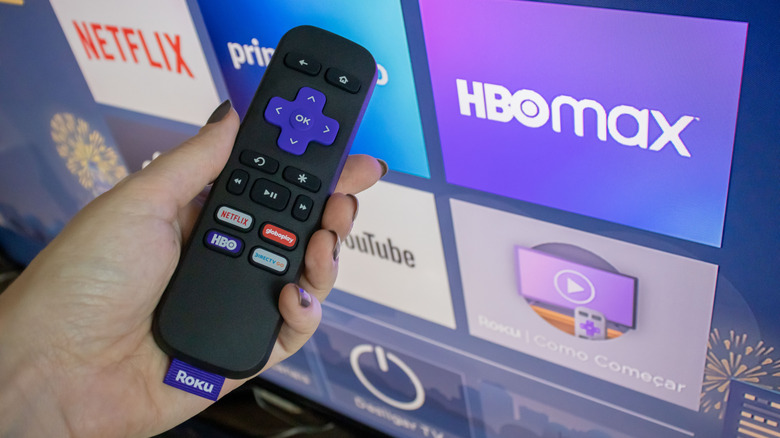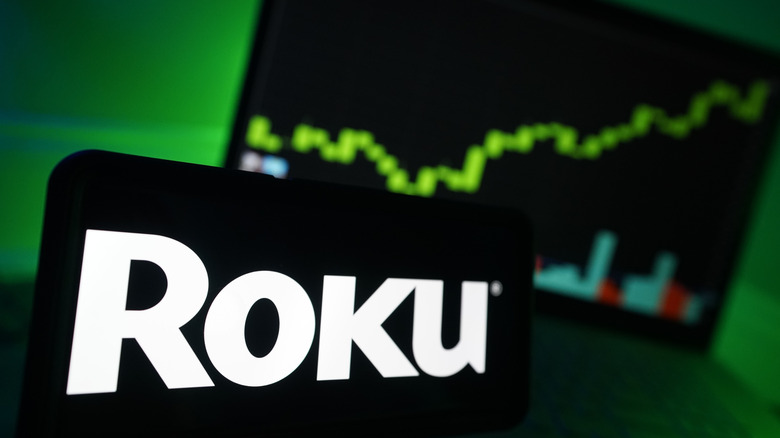The Reason Why Roku TVs Are So Cheap
Roku TVs are among some of the cheapest options on the market, and it's not necessarily because they're low quality. While TVs sold during holiday shopping events like Black Friday often have "derivative models" that leave out some great features, most official Roku TVs are not that. There are actually a few reasons for their competitive pricing, including improved manufacturing and parts, more accessible brands, and information brokering — the selling of user data. There's a saying that when a product is free, you are the product.
It's likely true of most cheap or budget-friendly electronics, as well. It's not just TVs either: Roku's new $2.99 ad-free streaming device is less than a cup of coffee. The market itself has grown more competitive in recent years, with parts, components, and electronic builds becoming more efficient and less costly. That makes it possible for manufacturers to build higher-quality TV sets for less. That's also led to many accessible brands, maybe even some that people have only recently come to know; like Hisense, TCL, and even Amazon and Roku's self-titled brands.
Those brands are becoming more well known as a result of this market competition. To understand this change, one only need to consider pricing; where years ago, 4K model TVs were in excess of $500, and now you can find them for around $350. There are different panel technologies and extra features that alter the price, but the best cheap TVs on Amazon are Roku or Fire TV equipped for around $350. That was unheard of three to five years ago, but the real money-maker for companies like Roku is the selling of data.
Why data brokering is the real money-maker
Everything you do on your devices is tracked, including your TV; from the way you interact with apps, to products you buy and the content you consume. This information is collected, wrapped up with a bow, and traded by third-parties for a variety of reasons. Collected in bulk, it's maintained by companies called data brokers who explicitly process, repurpose, and then sell to other companies. These companies use it for things like marketing, risk mitigation, and research. However, as massive as those data troves are, the brokers get the information from somewhere. That's where companies like Roku come into the equation.
The more engaged you are on a platform (the more you use it), the more nuanced information they can collect about your demographic, interests, and family. Bits of information like where you live, what services you use most, which commercials you skip, what you've purchased; it's all gathered, collated and sold. According to Investopedia, Roku's gross profit in 2023 amounted to $1.52 billion, and a large chunk was earned through digital advertising. The more users they have on the platform, the more data they gather, and the more money they can make from selling information.
As an offset, they lower the Roku TV prices, selling just above cost or sometimes taking a hit on profits to make it back later. The persistent earning stream is now more than selling smart TVs or media players, as it's monetizing every byte of user data. The thing is, Roku isn't the only company doing this. It's not even the most prolific. That certainly gives you something to think about the next time you're considering an affordable smart TV.

